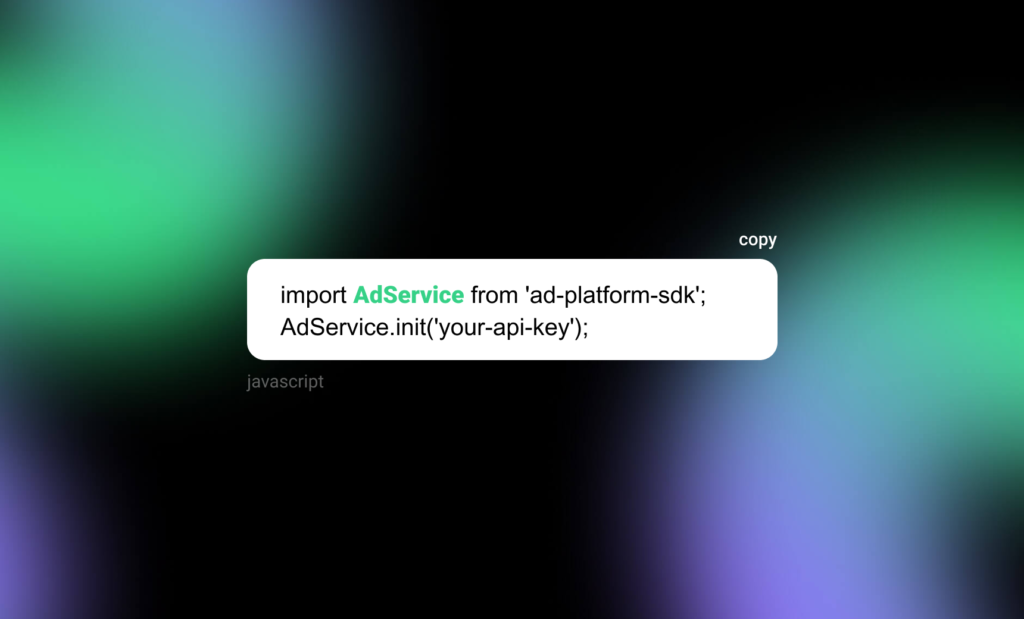A Line of Code is Not a Scam, But a Legitimate Monetization Tool Aligned with Webstore Policies

In the browser extension development community, particularly among Firefox users, there is a bias against integrating monetization mechanisms through small pieces of code. Such models are often described as potentially harmful schemes. However, the reality is much more nuanced, and a single “line of code” does not necessarily imply a violation of user data or an unethical business model. In this article, I aim to debunk common myths and demonstrate that monetization through a line of code can be a legal, transparent, and effective tool that aligns with the policies of extension stores.
Introduction
Monetizing browser extensions is a natural part of the development ecosystem. Developers invest time, resources, and effort into creating and maintaining their products, and the ability to earn revenue through advertising, affiliate programs, or other methods is not a scam—it’s a standard practice in the IT industry. However, due to several myths and misconceptions, many developers and users view such methods with suspicion. Let’s explore why these concerns are often exaggerated.
Myth 1: “It’s a Scam”
One of the most common misconceptions is that any offer to insert a line of code for monetization is a scam. However, this oversimplification ignores many factors:
- Legitimate services use this approach. Major monetization platforms, such as ad networks (Google AdMob, AdSense), affiliate programs (Amazon Associates), or analytics tools (Google Analytics), provide APIs that are integrated by adding a line of code. These services operate within legal frameworks and store policies.
- Strict store policies exist. Chrome Web Store, Firefox Add-ons, and Edge Add-ons require transparency in handling user data. Monetization mechanisms undergo moderation and comply with rules if implemented correctly.
- Earning revenue is normal. Developers have the right to earn income from their products. Advertising, affiliate links, or premium features are not scams but ways to support the development of the extension.
Myth 2: “Monetization Violates User Privacy”
Many users believe that any commercial implementation in an extension automatically leads to the collection of personal data. However, this is not always the case:
- Not all monetization methods involve data collection. For example, displaying non-intrusive ad banners that do not require analyzing user behavior is entirely possible without collecting personal information.
- Extension stores regulate data collection. Any integration that works with personal data must comply with GDPR, CCPA, and other legal frameworks.
- Transparency through open-source. If a developer publishes the source code or explains the mechanism in detail, it eliminates concerns about privacy violations.
Myth 3: “Monetized Extensions Annoy Users”
There is a belief that any form of advertising or commercial integration makes an extension less user-friendly. However, this is not necessarily true:
- Proper monetization does not hinder user experience. For example, non-intrusive banners or premium features do not degrade the core functionality of the extension.
- Users are willing to pay for valuable extensions. If the product is useful, many users will agree to a subscription or view ads to support the developer.
- Transparency reduces negativity. Honest communication about monetization methods helps avoid negative perceptions.
Legitimate Monetization Tool: Ways to Monetize
There are several legitimate ways to monetize an extension without violating store policies or user privacy:
- Advertising. Displaying native ads within the extension interface. For example, integrating with ad networks that comply with store policies.
- Affiliate ads. Using referral links in search results or functionality.
- Paid subscriptions. Locking certain features behind a monthly fee.
- Donations and crowdfunding. Voluntary user support through platforms like Patreon, Buy Me a Coffee, or similar services.
Why a “Line of Code” is Not a Scam
When people talk about adding a single line of code, they are often referring to integration with advertising or analytics platforms. For example:
import AdService from 'ad-platform-sdk';
AdService.init('your-api-key');This line connects your extension to an ad network, which manages ad displays, targeting, and developer payouts. This is not a scam but a standard monetization method used by thousands of apps and extensions worldwide.
How to Avoid Risks
To ensure you are using a legal and safe monetization tool, follow these recommendations:
- Research the platform. Choose only reputable platform with a good track record.
- Read reviews. Study the experiences of other developers who have used the platform.
- Check policies. Ensure the platform complies with the requirements of extension stores.
- Be transparent. Inform users about how and why you use advertising or analytics.

Conclusion
Monetization through a “line of code” is not inherently a scam. It is a modern and effective tool that can help developers earn revenue from their extensions. Of course, it is important to approach this with caution and choose only verified platforms, but dismissing this method entirely is not the solution. Instead of fearing monetization, developers should learn how to use these tools correctly and in compliance with store policies.
Developers who understand how to work with advertising platforms can not only increase their income but also improve the user experience by reinvesting earnings into their products. The key is to remain honest with yourself and your users. Monetization, when done right, benefits everyone—developers, users, and the ecosystem as a whole.


